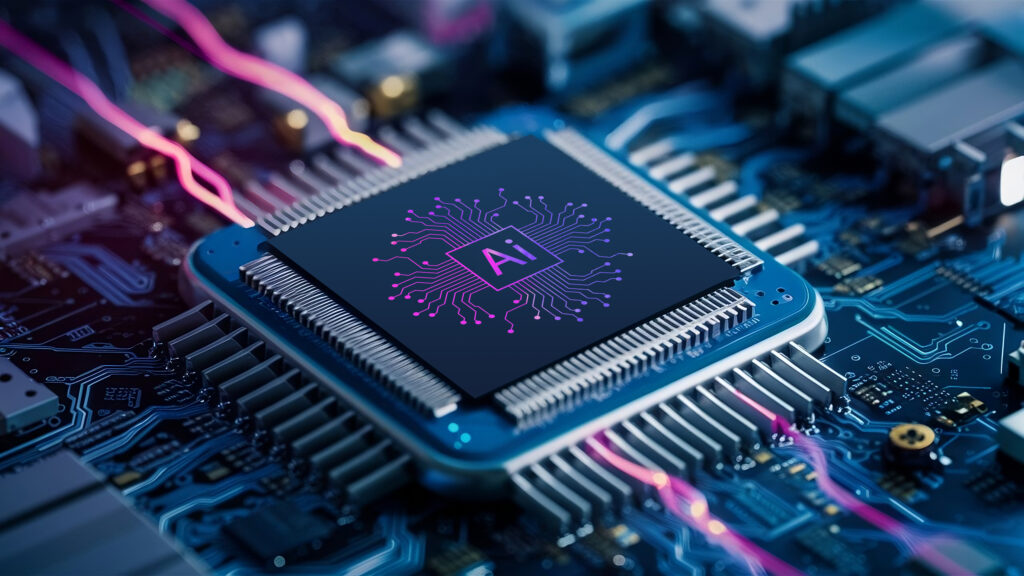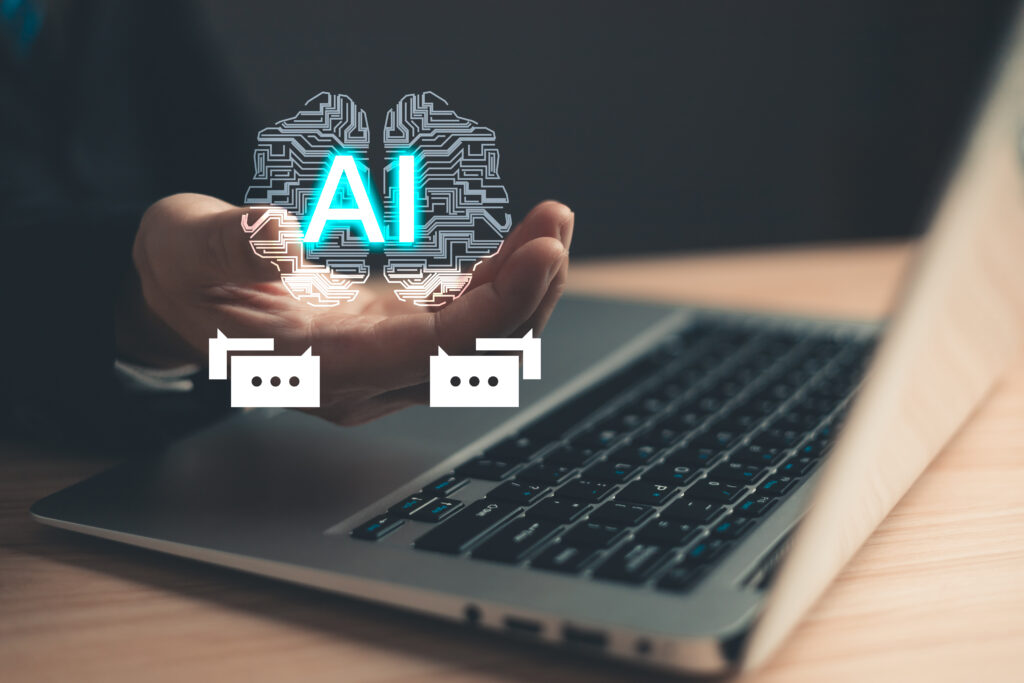AI in IoT: Benefits, Components, and Impact

AI in IoT is changing how connected devices operate by enabling real-time decision-making, automation, and predictive capabilities. By combining artificial intelligence with the Internet of Things, businesses can enhance efficiency, reduce costs, and improve user experiences across industries. This blog explores the key benefits, essential components, and broader impact of AI-driven IoT solutions. What is AI in IoT? AI in IoT blends the data-processing powers of AI with the connectivity and data-collecting capabilities of IoT devices. The two technologies work quite well together. The Internet of Things ecosystem of “things” with integrated sensors could produce and…
AI and Low-Code/No-Code: A New Era of Development and Innovation

AI and Low-Code/No-Code platforms are transforming software development by making it faster, more accessible, and less reliant on traditional coding expertise. With AI automating code generation, debugging, and optimization, businesses can build and deploy applications with minimal technical effort. But does this mean developers will become obsolete, or is AI simply enhancing their role in the development process? Benefits of AI and Low-Code/No-Code Instead of utilizing textual code, AI’s machine learning and natural language processing (NLP) capabilities enable users to simply communicate what they want using conversational cues. By removing skill barriers, these user-friendly inputs expedite development and…
The Ultimate Guide to AI in IT Support: The Tools, Benefits & Challenges You Must Know

AI in IT support changes how businesses manage technical issues, making support faster and more efficient. From automated ticketing systems to intelligent chatbots, these tools are transforming customer service operations. However, despite its many benefits, challenges such as implementation costs, data security, and maintaining a human connection still need to be addressed. In this blog post, we’ll explore the tools, benefits, and challenges of AI in IT support you must know about! 5 Tools for AI in IT Support Predictive Maintenance Predictive maintenance technologies analyze data from several systems and forecast when problems are likely to…
The Game-Changing Benefits and Trends of AI Personalization: Marketing’s Bright Future
AI personalization in marketing is changing the way businesses connect with their audiences. By analyzing data and adapting in real-time, AI enables tailored customer experiences that drive engagement and boost loyalty. In this blog post, we’ll explore the key benefits of AI personalization, the latest trends shaping its evolution, and why it’s a must-have strategy for modern marketers. What is AI Personalization? Recent developments in AI technology, including generative AI, have improved marketing strategies by creating customized experiences almost instantly. AI personalization is the process of using artificial intelligence to customize services, product suggestions, and messages…
AI in HR: The Secret to Better Recruitment and Employee Management

Artificial Intelligence is revolutionizing how organizations and human resources approach recruitment and employee management. By leveraging advanced algorithms, companies can streamline hiring processes, identify top talent, and easily make data-driven decisions. Beyond recruitment, AI in HR enhances employee management through predictive analytics, personalized training programs, and improved engagement strategies. This blog explores how these tools are shaping the future of human resources, creating a more efficient and inclusive workplace. AI Tools for Talent Acquisition and Recruitment Recruitment is one of the most time-intensive tasks in HR, but AI in HR is transforming the process by automating repetitive…
AI in Disaster Management: Intelligent Solutions in Action

In an era where natural disasters pose increasingly significant threats, the integration of AI is transforming disaster management into a more efficient and effective process. By harnessing intelligent solutions, organizations can predict, respond to, and recover from emergencies with unprecedented speed and accuracy. This blog post explores the innovative applications of AI in disaster management, highlighting how technology is reshaping our approach to crisis response and resilience. The Role of AI in Disaster Management Through various applications, AI in disaster management has established itself in crisis management. AI tools are employed in: Predicting Disasters AI…
Why Explainable AI (XAI) Matters: Bringing Clarity to Complexity

Machine learning models often function like “black boxes,” making decisions that even their creators can’t fully explain. As AI transforms industries like healthcare and finance, the need for transparency is vital. This is where Explainable AI (XAI) steps in, revealing how decisions are made and building trust in AI systems. In this post, we’ll explore why XAI matters and how it clarifies the complexity of modern AI. What is Explainable AI (XAI)? Explainable AI consists of methods that make machine learning algorithms transparent and interpretable, helping users understand and trust the results. XAI not only clarifies how…
The Essential Benefits and Hurdles of AI in Supply Chain: Balancing Innovation

Artificial intelligence offers unmatched efficiency, predictive capabilities, and automation in supply chain management. However, alongside these advancements come significant challenges, such as data security risks, integration complexities, and the need for skilled personnel. This blog explores the benefits and hurdles of adopting AI in supply chains, highlighting key considerations for businesses aiming to stay competitive. 8 Benefits of AI in Supply Chain Lower Operational Costs AI in supply chain can handle repetitive tasks like counting and documenting inventories with greater accuracy and less manpower while identifying and resolving bottlenecks. Its ability to understand complex behaviors and…
Mastering AI in Supply Chain: Unlock How It Works and How to Future-Proof Your Operations

Artificial intelligence is redefining supply chain management by enabling businesses to anticipate demand, minimize disruptions, and enhance decision-making. From streamlining logistics to automating complex tasks, AI in supply chain transforms how operations are managed and optimized. In this blog post, we’ll explore how AI works in supply chains and the essential steps to future-proof your operations, ensuring you’re ready for the next wave of innovation. What is AI in Supply Chain? Artificial intelligence is transforming supply chain operations like manufacturing, management, planning, and optimization. By analyzing large data sets, it enhances efficiency and decision-making, completing complex tasks…
AI and the Workforce: How Automation is Shaping Jobs and the Future of Work

Artificial intelligence is transforming industries and reshaping the workforce, by automating various sectors. As AI continues to advance, it’s not only streamlining tasks but also creating new roles and opportunities in the workforce. In this blog post, we explore how AI is redefining jobs, reshaping skill demands, and influencing the future of work. The Rise of Automation and AI Automation and AI have driven unprecedented productivity and creativity across various sectors, from automated customer service to self-driving cars. These technologies are transforming the workforce and opening new career opportunities, especially in AI and machine learning. …
